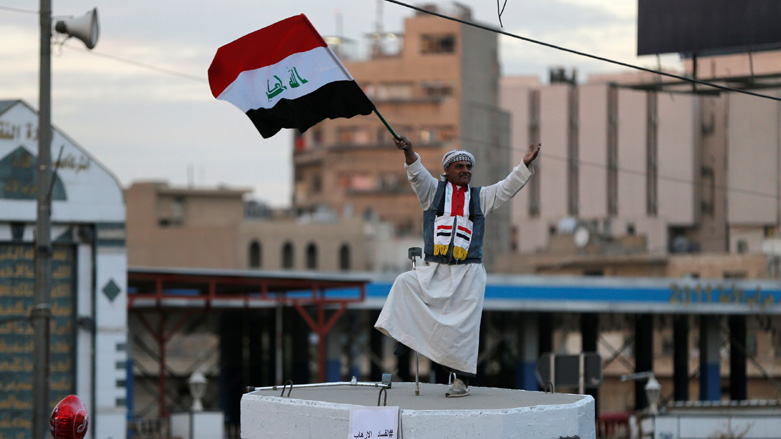Abadi's coalition claims deal to form new Iraqi government

ERBIL (Kurdistan 24) – Iraqi Prime Minister Haider al-Abadi’s political alliance announced on Friday that it had reached an agreement with other major parties to form the next government.
According to a statement released by Khaled al-Obeidi, chief negotiator of the Nasr (Victory) Coalition, the deal includes the frontrunner of May's election, Muqtada al-Sadr’s Sairoon coalition, Ammar al-Hakim’s al-Hikma (Wisdom) party, and Ayad Allawi’s al-Wataniya (National) coalition.
Obeidi said that preliminary talks with al-Hikma and al-Wataniya had “led to positive results and common understandings, preparing the groundwork for a viable government program.”
“We are now in close agreement with Sairoon, al-Hikma, and al-Wataniya, and have also forged understandings with the Kurdistan Democratic Party (KDP),” he added.
On Thursday, Iraq’s electoral commission announced the results of the manual recount of votes as a result of widespread controversy amid charges of fraud in the May 12 national elections. There were no substantial changes in the seat numbers won by main parliamentary blocs.
According to the final results, Sairoon remains the winner with 54 seats out of total 329, followed by the bloc associated with Shi'a militias, al-Fatih, with 48 seats. Abadi's coalition came in third with 42 seats.
The newly-seated parliament members are charged with electing a new speaker and two deputies in their first session, to be held within 15 days of the Federal Supreme Court of Iraq's ratification of final election results. After a new speaker is in place, lawmakers have 30 days to elect, by a two-thirds majority, Iraq's new president, who is then given 15 days to nominate the prime minister from the largest bloc in parliament.
The prime minister, in turn, will have another 30 days to form his cabinet, with ministers then referred back to parliament for individual approval. If the effort is unsuccessful, the president has yet another 15 days to nominate another prime minister to repeat the process of forming a cabinet.
Over the past month, Iraq has witnessed a wide range of protests across the central and southern provinces with people demanding better public services, higher employment, and reducing massive corruption in state institutions. Protesters have also called for major reform in Iraq's political process.
Editing by John J. Catherine
